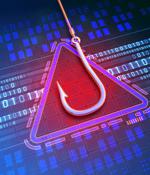Security News

Google's Threat Analysis Group recently discovered a new tool named Hyperscrape which is able to steal data from mailboxes such as Gmail, Yahoo! or Microsoft Outlook. Hyperscrape is a tool written for Windows systems in.

The Iranian government-backed actor known as Charming Kitten has added a new tool to its malware arsenal that allows it to retrieve user data from Gmail, Yahoo!, and Microsoft Outlook accounts. Dubbed HYPERSCRAPE by Google Threat Analysis Group, the actively in-development malicious software is said to have been used against less than two dozen accounts in Iran, with the oldest known sample dating back to 2020.

A suspected Iranian threat activity cluster has been linked to attacks aimed at Israeli shipping, government, energy, and healthcare organizations as part of an espionage-focused campaign that commenced in late 2020. Cybersecurity firm Mandiant is tracking the group under its uncategorized moniker UNC3890, which is believed to conduct operations that align with Iranian interests.

State-sponsored Iranian hacking group Charming Kitten has been using a new tool to download email messages from targeted Gmail, Yahoo, and Microsoft Outlook accounts. Google TAG attributes the tool to Charming Kitten, an Iranian-backed group that is also known as APT35 and Phosphorus, and says that the earliest sample they found dates from 2020.

A threat actor working to further Iranian goals is said to have been behind a set of disruptive cyberattacks against Albanian government services in mid-July 2022. Cybersecurity firm Mandiant said the malicious activity against a NATO state represented a "Geographic expansion of Iranian disruptive cyber operations."

"The new malware is a.NET based DNS Backdoor which is a customized version of the open source tool 'DIG.net,'" Zscaler ThreatLabz researchers Niraj Shivtarkar and Avinash Kumar said in a report published last week. "The malware leverages a DNS attack technique called 'DNS Hijacking' in which an attacker-controlled DNS server manipulates the response of DNS queries and resolves them as per their malicious requirements."

NET-based DNS backdoor to conduct attacks on companies in the energy and telecommunication sectors. A recent analysis by Zscaler presents a new DNS backdoor based on the DIG.net open-source tool to carry out "DNS hijacking" attacks, execute commands, drop more payloads, and exfiltrate data.

Microsoft has obtained a court order to seize 41 domains used by what the Windows giant said was an Iranian cybercrime group that ran a spear-phishing operation targeting organizations in the US, Middle East, and India. The Microsoft Digital Crimes Unit said the gang, dubbed Bohrium, took a particular interest in those working in technology, transportation, government, and education sectors: its members would pretend to be job recruiters to lure marks into running malware on their PCs. "Bohrium actors create fake social media profiles, often posing as recruiters," said Amy Hogan-Burney, GM of Microsoft's Digital Crimes Unit.

A ransomware group with an Iranian operational connection has been linked to a string of file-encrypting malware attacks targeting organizations in Israel, the U.S., Europe, and Australia. Cybersecurity firm Secureworks attributed the intrusions to a threat actor it tracks under the moniker Cobalt Mirage, which it said is linked to an Iranian hacking crew dubbed Cobalt Illusion.

Threat analysts have spotted a novel attack attributed to the Iranian hacking group known as APT34 group or Oilrig, who targeted a Jordanian diplomat with custom-crafted tools. The attack involved advanced anti-detection and anti-analysis techniques and had some characteristics that indicate lengthy and careful preparation.